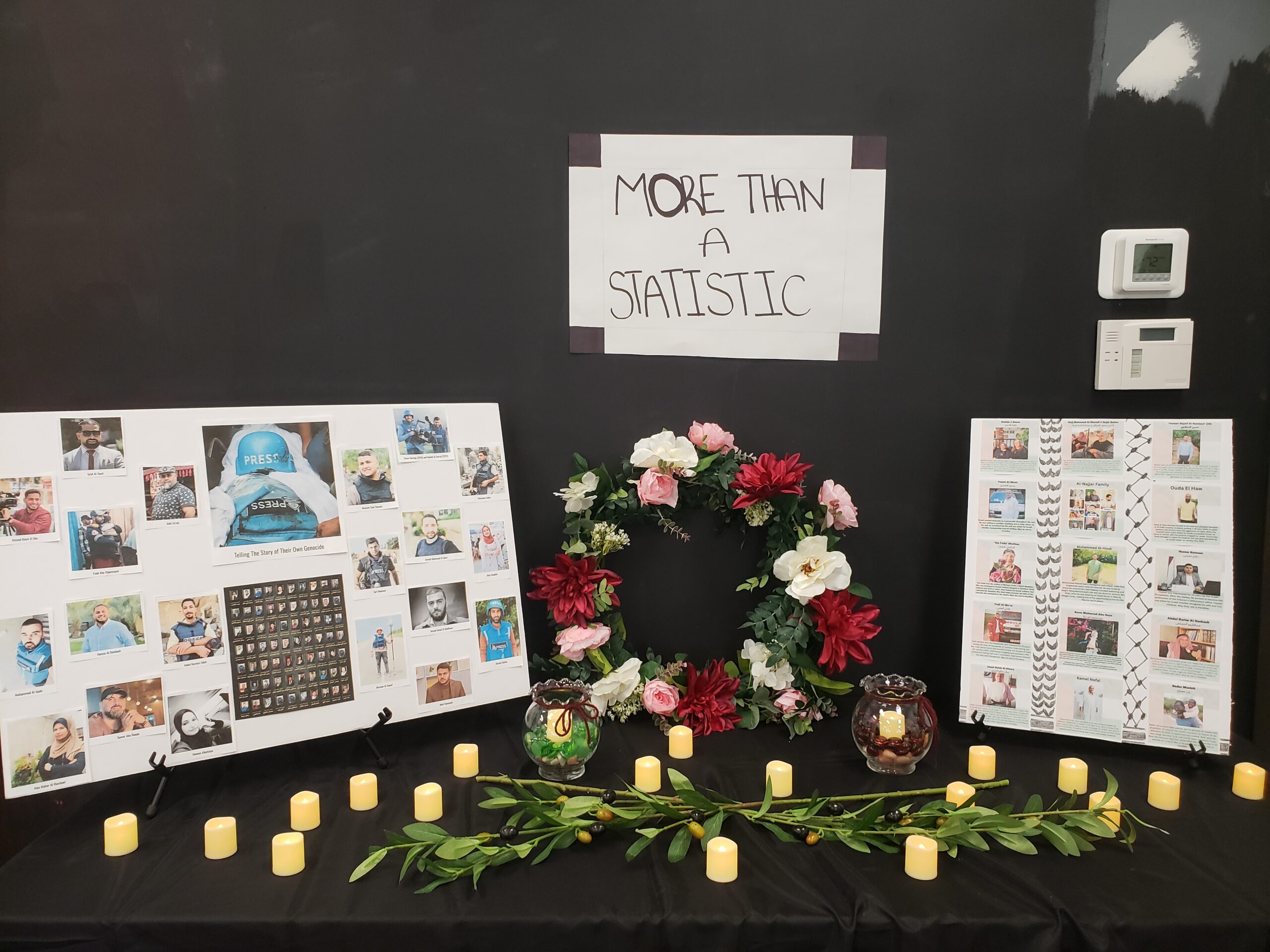Last October, 16 of Marwa Jarada’s family members were killed in an airstrike by Israel in Gaza. The Associated Press and Canadian Broadcasting Association reported that Israel launched 400 airstrikes on Jarada’s family’s neighborhood killing at least 704 people.
Since the tragic loss of life in October, the situation in Gaza has only gotten worse. Jarada, who is a master’s student in computer science at NDSU, spoke about what her surviving friends and family face in the continued war on Gaza as the official death toll passes 25,000 with over 10,000 dead children.
The first immediate struggle is just getting in contact with anyone is Gaza. Since the war started, she hasn’t been able to reach out to her relatives. She has only heard about them from her brother can, but has difficulty securing any form of communication.
This is due in part to the numerous communication blackouts that Gaza has faced with the most recent one lasting over a week. However, it is also challenging because of the continued displacement. 85%, 1.9 million people, are internally displaced. Half of which have been crammed into the city of Rafah, which had a pre-war population of 280,000.
Jarada’s sister, like many others, has been forced to relocate three times to supposed safe zones. She has now made it to a refugee camp. However, when the crowded camps are full, and if they don’t know anyone with a house in the area, Gazans are forced to live on the streets.
Jarada has been able to communicate with a friend who has faces the problem of lack of medical care. Her friend’s father has diabetes and got an leg injury and is unable to get care.
“There is no emergency [services]… they don’t go to the ambulance… if there is anyone around to help them, they can take them to the hospital, but there is no healthy service running,” said Jarada. “Even if you get to the hospitals, you don’t have the right treatment there because there is no health resources anymore there in Gaza.”
“The hope for like injured people is to have treatment from the outside of Gaza, but and most of them are trying to cross and leave Gaza to get some treatment, maybe in Egypt, but they can’t,” said Jarada. She worries that if her friends father is unable to get urgent treatment they might have to amputate.
Already over 1,000 children in Gaza have to have one or both legs amputated, many cases of which without anesthesia.
Gaza continues to face wide scale destruction. By mid-December, 70% of homes and 50% of all buildings have been damaged or destroyed. Israel has dropped over 29,000 bombs on Gaza, an area 2.5 times larger than the City of Fargo. U.S. military historian Robert Pape has said “Gaza is one of the most intense civilian punishment campaigns in history.”
While all this unfolds, from Fargo, “all I can do is just listening and hear them out complaining [and] crying with them. That’s it,” Jarada said. “It is hard to describe my feelings… especially because I have to do my job here. I have classes to attend.”
“I don’t like to focus on racism and play the victim role, but it is actually the truth that people don’t see all people as [equally] human.” NDSU, for example, has yet to offer any official show of support for Palestinians.
This compares to the start of the Russia-Ukraine war when the Faculty Senate issues a statement in support of Ukraine denouncing Russian aggression. The Dean of Students also promoted events to support those effected by the war. The political science department also hosted informative events.
Jarada added, “I feel like it’s normalized now. People [have] started to get used to it. It’s part of our daily life. But like for someone like me it is just hard to live with. It’s just every day is like a challenge for me.”
Asked about the future of her home, Gaza, in the face of the large-scale destruction Jarada said “it’s a hard question, but what I could say is if we could stop this genocide… [and] the war has stopped as soon as possible I could say yeah, we can build [Gaza] one more time.
